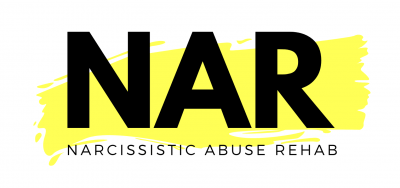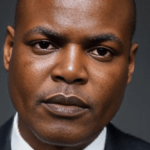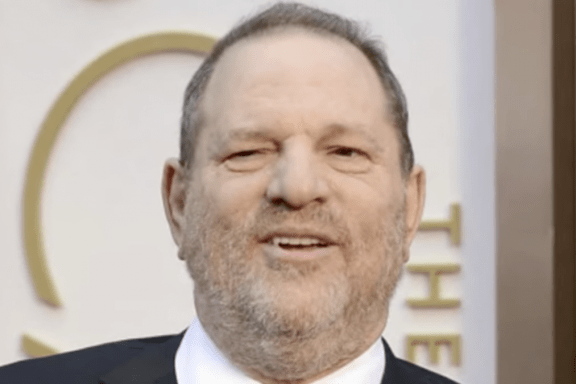Joi Dickerson Neal is the second individual to allege that music mogul Sean ‘Diddy’ Combs drugged and raped her in 1991. She lodged a complaint in Manhattan Supreme Court on November 23, 2023. Her action came just one day before the expiration date of the New York State Adult Survivors Act. She alleges that, in addition to the sexual assault, Diddy participated in “revenge porn” against her. The footage was allegedly shared with his associates in the music industry. She contends that the circulation of the video has been detrimental her health, reputation and professional opportunities. Ms. Dickerson Neal’s legal action follows the lawsuit filed by Cassie Ventura on November 16, 2023.
* Trigger Warning: This article discusses sensitive topics. Reader discretion is advised. *
Biography

Joi Dickerson Neal was born in 1970 in New York to Diane (née Graves) and George ‘Buddy’ Dickerson Jr. Her father passed away six months after she was born. She was raised by her widowed mother who she says instilled strong moral and ethical values in her. In 1987, she enrolled at Syracuse University, her late father’s alma mater, where she was a psychology major. There, she developed a reputation for her commitment to her studies.
Ms. Dickerson Neal financed her studies by working as server at Wells Restaurant in Harlem, New York. Later she worked as a receptionist at AppleOne, a talent agency. She went on to work as an assistant at Stress Management, a company that represented DJ Funkmaster Flex. She was a location scout for Gary Brewer, a renowned cameraman in the film industry. Ms. Dickerson Neal also worked with film director Chuck Stone. She collaborated on music videos for Grammy-award-winning artists such as A Tr!be Called Quest and Meshell Ndegeocello.
Disturbing Details of Lawsuit Against Sean ‘Diddy’ Combs
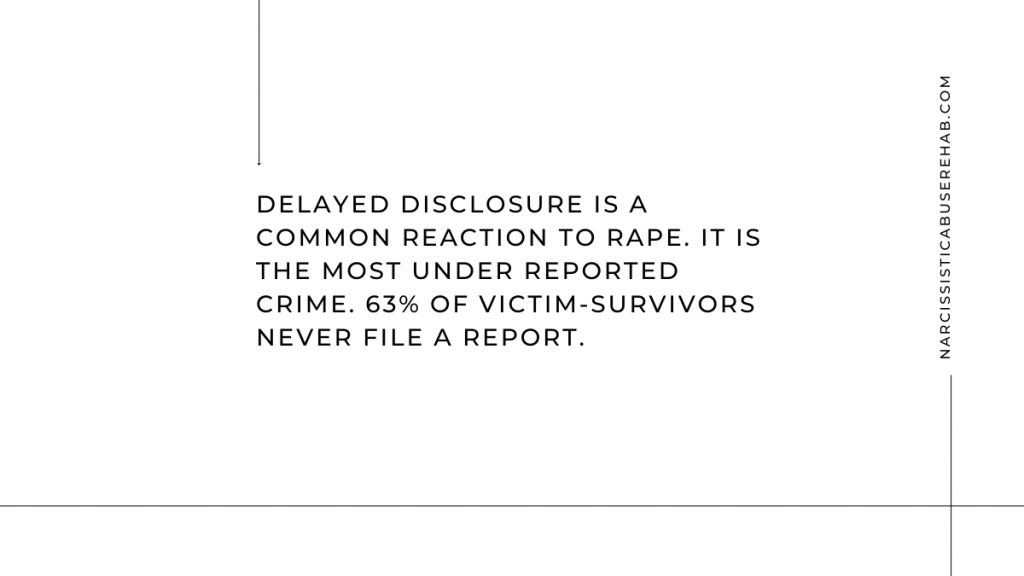
Joi Dickerson Neal’s lawsuit reveals a disturbing narrative of sexual assault, humiliation, bystander betrayal, and subsequent emotional trauma allegedly inflicted by Sean ‘Diddy’ Combs.
At the time, Ms. Dickerson-Neal and Diddy belonged to the same social circle and had previously collaborated on the music video for “Straight From The Soul” by Finesse and Synquis. She asserts that she rejected his persistent advances due to rumors of his misogyny. However, she eventually acquiesced and agreed to have dinner with him.
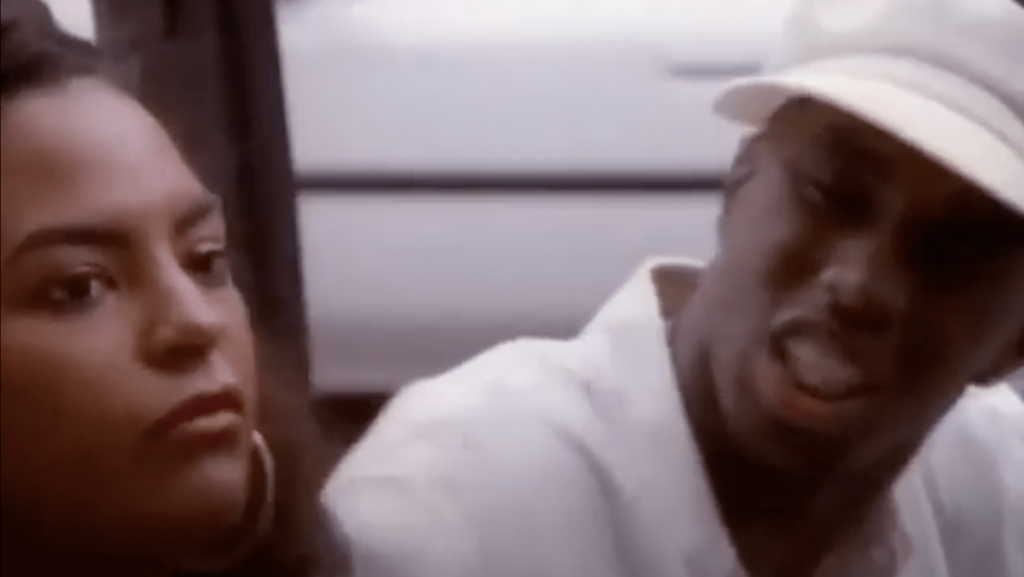
On January 3, 1991, Ms. Dickerson-Neal claims that Diddy spiked her drink while she was in the restroom at Wells Restaurant in Harlem. After leaving the restaurant, she asserts that he transported her to two others location, a recording studio and his home. There, according to her lawsuit, he subjected her to sexual assault, resulting in severe pelvic pain.
Traumatized, she alleges that she chose not to seek medical attention or report the incident to the police. This is a common response of victim-survivors of sexual assault. In fact, rape is the most under reported crime with 63% of victim-survivors never filing a report. According to her lawsuit, she withdrew into self-isolation at her home. When she felt safe and able, Ms. Dickerson-Neal says she confided in her best friend about the alleged rape.
The allegations in Ms. Dickerson-Neal’s lawsuit bear notable similarities to those in Ms. Ventura’s legal action against Diddy. Their parallel legal actions have the potential to establish a pattern of criminal gender-based violence, enhancing the credibility of the ever-increasing claims against Diddy.
Revenge Porn and Bystander Betrayal

Soon after the alleged rape, Ms. Dickerson-Neal claims to have discovered that Diddy had secretly recorded the incident without her knowledge or consent. DeVanté Swing, a mutual friend, allegedly told her that Diddy had shown him the tape. When she inquired who else had seen the footage, DeVanté responded, “Everyone.”
DeVanté purportedly said he wished to take a stand against Diddy, but his fear that his band Jodeci might lose their record deal stopped him. Diddy was Jodeci’s A&R at the time. She claims that DeVanté was willing to ignore that Diddy allegedly raped and victimized her, in order to safeguard his own interests. Ms. Dickerson-Neal’s lawsuit describes bystander betrayal, a common feature of rape culture, where victim-survivors face a collective unwillingness to condemn sexual assault among community bystanders, often driven by fear.
Impact on Health and Social Status
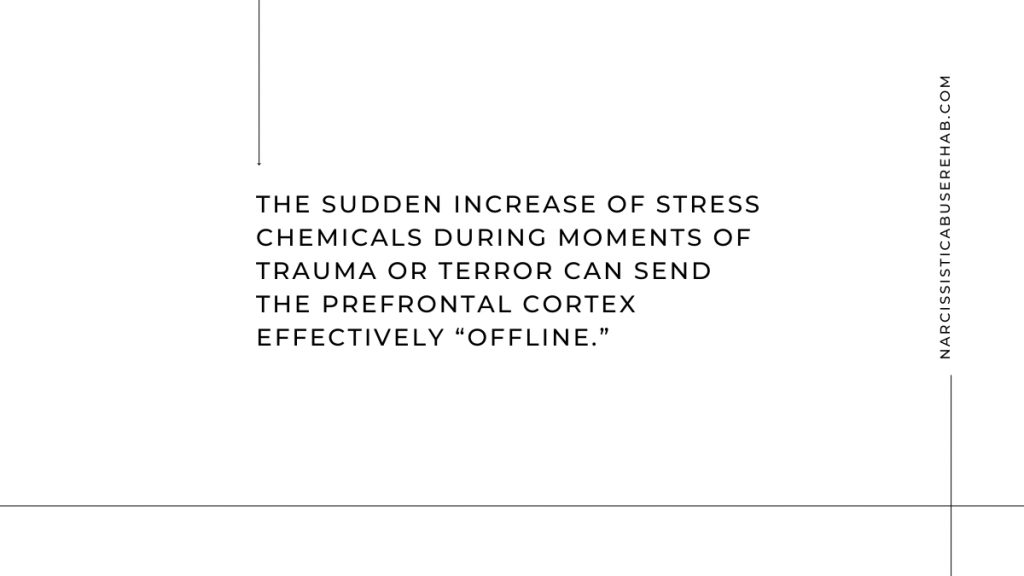
The multiple traumas Ms. Dickerson-Neal’s experienced resulted in severe emotional distress, impacting her mental health, education, and career. The sexual assault, humiliation, and psychological torment allegedly inflicted by Diddy as well as the video recording of her alleged rape affected her ability to function. Suffering from flashbacks and insomnia, she eventually dropped out of school, struggled with suicidal ideation, and received psychiatric care, leading to a diagnosis of clinical depression.
During her recovery, she alleges that she filed police reports against Diddy in New York and New Jersey. She also says she made efforts to obtain the revenge porn footage. Once again, she claims to have experienced bystander betrayal, as those who allegedly viewed the tape were too frightened to defy Diddy, and unwilling to provide statements about the alleged rape.
According to her lawsuit, Ms. Dickerson-Neal claims that she went to great lengths to avoid Diddy but ran into him at a work-related event. She alleges that he cornered her, knelt down, and insisted on his innocence. She also alleges that her employer at the time witnessed the exchange and inquired about what was happening.
A Disturbing Pattern of Behavior

As Joi Dickerson Neal’s lawsuit against Diddy unfolds, it is worthwhile to consider the broader context of previous allegations against the music mogul. They appear to shed light on a pattern of behavior that has emerged over the years. Several people have come forward with accusations ranging from sexual harassment to physical abuse. Understanding this history is crucial for an accurate analysis of the current case and its broader implications.
- May 08, 2017: Cindy Rueda, Combs’ personal chef, filed a lawsuit in the Superior Court of the State of California for the County of Los Angeles. She accused him of sexual harassment. The matter was settled out of court.
- 2019: Gina Huynh, an ex-girlfriend of Combs, revealed in an interview that she experienced physical abuse from him.
- November 16, 2023: Cassie Ventura, an artist signed onto Bad Boy Records, lodged a lawsuit in the Southern District of New York, alleging that Combs coerced her into recording herself engaging in sexual activities with a sex worker.
Context and Relevance

Joi Dickerson Neal’s lawsuit against Diddy has broader significance within the context of the #MeToo movement and the ongoing societal conversation about sexual assault, harassment, and accountability. It also highlights the prevalence of gender-based violence within the entertainment industry amid allegations against high-profile figures like Harvey Weinstein, Bill Cosby, and Russell Simmons – a former mentor to Diddy.
The lawsuit intersects with discussions around power dynamics, consent, and the impact of such incidents on victim-survivors of gender-based violence. Furthermore, the case highlights the expressions of misogynoir, a distinctive combination of sexism and racism specifically experienced by African-American women and girls interpersonally, socially, and institutionally.
The disconcerting reality is evident in the numbers. African-American women experience domestic violence at a rate that is 35% higher than that observed in white counterparts, and approximately 2.5 times more than women of other racial backgrounds. Ms. Dickerson-Neal’s lawsuit illustrates the propensity to de-center and marginalize the injustices suffered by African-American women within their own communities. The mental anguish of in-group betrayal can result in a distinct kind of racial trauma.
Ultimately, Ms Dickerson-Neal’s case may become a part of the larger narrative aimed at holding people accountable for their actions, regardless of their status or influence. Her lawsuit and public discourse surrounding the case may help create a culture that prioritizes rights of victim-survivors and challenges the immunity enjoyed by lionized figures.
Legal Hurdles and Diddy’s Denial

As Ms. Dickerson Neal pursues legal action against Diddy, she faces a number of obstacles. Diddy is represented by Ben Brafman, a criminal defense attorney whose clients include Dominique Strauss-Kahn, Harvey Weinstein, Vincent ‘Chin’ Gigante, and Sammy ‘The Bull’ Gravano.
Diddy’s legal team released a statement in response to her lawsuit:
“This last-minute lawsuit is an example of how a well-intentioned law can be turned on its head. [The] 32-year-old story is made up and not credible. Mr. Combs never assaulted her and she implicates companies that did not exist. This is purely a money grab and nothing more.”
The statement contains several common discrediting strategies often seen in cases involving sexual assault:
- Motive: The use of the term “last-minute” implies that the timing is suspicious. Moreover, labeling the case as a “money grab” implies a pursuit of financial gain rather than a quest for justice.
- Trustworthiness: The use of the term “made-up” suggests that the accuser’s account is unreliable.
- Denial: The statement contains a direct denial of the allegations.
- Timeline: The assertion that none of Mr. Combs companies were establish at the time of the alleged rape, attempts to cast doubt on the overall narrative.
To be sure, Bad Boy Entertainment was not established until 1992, a year after the sexual assault and revenge porn is said to have occurred. However, if Ms. Dickerson-Neal’s attorneys can provide evidence that the alleged revenge porn recording was circulated among staff at the companies Diddy founded after the rape, his businesses might be culpable.
So-called “historical” cases of rape are difficult to prove in court. Brafman and his associates seem to be well aware of this as they dismissively pointed out that the alleged rape and revenge porn took place 32 years ago. This is a common and underhanded tactic that plays into misconceptions about the lasting impact of trauma.
Interestingly, Brafman’s argument is identical to the one made by disgraced singer/songwriter R. Kelly. In a video posted on Facebook in 2018, Kelly boasted to a roomful of his enablers:
“I’m handcuffed by my destiny. It’s too late. They should’ve done this sh*t 30 years ago. It’s too late.”
Indeed, R. Kelly was handcuffed by Chicago police when he turned himself on 10 counts of criminal sexual abuse in 2019. He is currently serving a 20 year sentence for racketeering, sex trafficking, and child sex crimes.
The Reality of Rape for Victim-Survivors
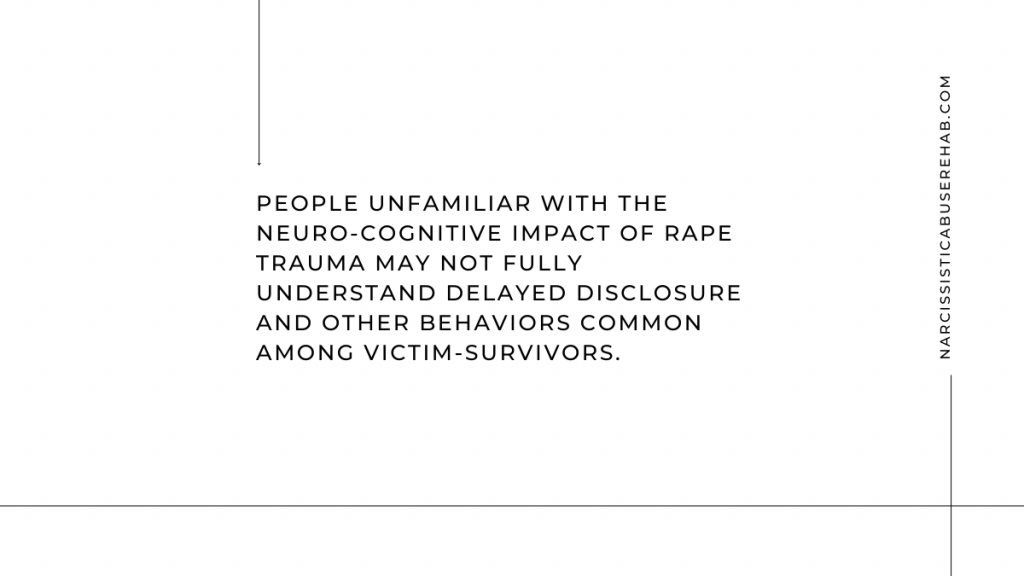
Survivors of sexual assault often face questions such as “why did you wait to report?” or “why didn’t you take action then?” These queries are usually come from people unfamiliar with the lasting physical- and emotional effects of sexual assault. The symptoms of rape trauma were identified and studied by Dr. Ann Burgess and Dr. Lynda Lyttle Holmstrom in the early 1970s. Their research helped pave the way for our current understanding of post-traumatic stress syndrome.
Here are some facts to consider:
- 7 out of 10 victim-survivors experience paralysis during rape.
- Delayed disclosure of rape is commonplace.
- 1/3 of victim-survivors experience suicide ideation.
- Complex variants of post-traumatic stress that can last for months or years after the rape.
It’s important to have open conversations about the lasting impacts of rape, including historical rape, to dispel misconceptions and cultivate compassion.
Why Accountability Matters

According to the National Association for Women in New York City only 50 out of every 1000 incidents of rape lead to an arrest or conviction. This highlights the uphill battle many victim-survivors face when seeking to hold perpetrators to account.
Why is accountability important? The fact is that accepting responsibility for one’s actions serves not only the interests of the victim-survivor but also those of the perpetrator and society at large. Accountability is important for the healing of the victim-survivor and it makes rehabilitation of the perpetrator possible. As gender violence prevention advocate Queen Camilla astutely observed:
“Rapists are not born, they are constructed. And it takes an entire community – male and female – to dismantle the lies, words and actions that foster a culture in which sexual assault is seen as normal, and in which it shames the victim.”
Rape is an act of abusive power and control that occurs solely for the ego gratification of the perpetrator. Furthermore, it is a dehumanizing experience for victim-survivors, representing a profound violation of their human rights.
When victim-survivors of rape pursue justice, they are well aware of the likelihood of unsuccessful outcomes. In the event of success, how can they realistically be compensated for the loss of time, health, potential, and the exorbitant cost of recovery? The truth of the matter is that no amount of money in the world can make up for the pain and suffering of being raped.
Wherever the chips may fall, Joi Dickerson Neal’s lawsuit against Sean ‘Diddy’ Combs empowered her to find her voice and share her story. In the broader context, her legal action will contribute to the ongoing dialogue about justice for victim-survivors and the prevalent patterns of gender-based violence within the entertainment industry. Furthermore, her case may also help shed light on the unique challenges faced by African-American survivors of rape.
Resources
- Caiola, M. and Goldhirsch, J. (2023). Joi Dickerson-Neal v. Sean Combs. Manhattan Superior Court.
- Martin DeAnglis (2011). Cleaning Atlantic City House Yields Diarys, Letter From Famed Pilot. Press of Atlantic City.
- Wilderson III, F.B. (2017). Reciprocity and rape: Blackness and the Paradox of Sexual Violence, Women & Performance. A Journal of Feminist Theory.
- Crist, C. (2017). Many rape victims experience ‘paralysis’ during assault. Reuters.
- Kilpatrick, D. G. (2000). The Mental Health Impact of Rape. National Violence Against Women Prevention Research Center.
- Rothbaum, B. O., Foa, E. B., Riggs, D. S., Murdock, T., & Walsh, W. (1992). A prospective examination of post-traumatic stress disorder in rape victims. Journal of Traumatic Stress, 5, 455-475. doi: 10.1002/jts.2490050309
Confidential support is available to anyone experiencing abuse.
Book a FREE 15-minute consultation or a paid narcissistic abuse recovery coaching session.
